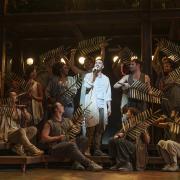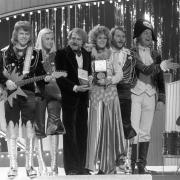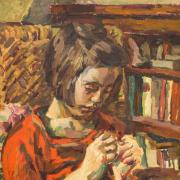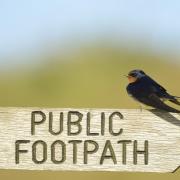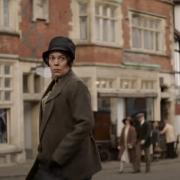The number of local bookshops in the UK has fallen from 6,000 to 1,000 in just a decade. Judy Sharp investigates...
ONCE upon a time there were local, independent bookshops in almost every town and village. Then things changed. In 1997 Net Book Pricing was abolished, opening the floodgates for massive price-cutting by chains and supermarkets. More recently, the explosion of the internet led to e-books, Kindles and iPads, and Amazon, "the biggest bookstore in the world". And so all the local, independent shops closed and were never seen again.
Thankfully, that’s just not true. Nationally the number of local bookshops has fallen from 6,000 to around 1,000 in just a decade and in the last five years alone, almost 400 "indies" have closed. Industry figures show that, by value, chain bookshops have a 36 per cent market share, internet-only retailers (ie Amazon) 31 per cent – and independents just 5 per cent. Is that a large enough slice of the cake to keep them from starvation? In Sussex less than a dozen independents remain. Hugely different, they nevertheless share certain key characteristics, not least a realistic approach to the challenges they face and a determined optimism about the future. Some Sussex bookshops are housed in centuries-old buildings with nooks and crannies, uneven floors and sagging beams – Martello in Rye, the Boo Shop in East Grinstead and Barnett’s in Wadhurst. By contrast, Much Ado Books in Alfriston recently moved into its newly-refurbished former builders’ yard, complete with carpets and comfy chairs, pretty courtyard and a barn with spaces for cookery and craft demonstrations. Smart City Books in Hove is a mecca for signed copies while in Brighton, Kemp Town Books’ coffee shop is as famous as its beautiful limited edition art prints. Petworth Books is light, bright and very well stocked – and Sarah at The Book Ferret in Arundel leaves enough space for pushchairs around the decorative fireplace.
What keeps these bookshops alive in the face of the Electronic Onslaught? It’s the very individuality of the shops and the books stocked; the personalities of the owners and staff; the enthusiasm, knowledge and personal service they offer and their contribution to the local community – that’s a lot of lovely boxes ticked. When you are dealing with real people and real books the whole process of choosing and buying books becomes an enjoyable experience. Paul Sweetman of City Books puts it like this: "Giving an e-book for a present is like topping up someone’s phone."
Wendy Harvey of Martello says: "a Kindle on the coffee table does not have the same impact as a large, beautifully-illustrated book."
Not everyone would agree, of course, but for book-lovers – sellers and buyers alike – it’s the difference between a mass-produced, pre-packed, white sliced loaf and home-made, freshly-baked, artisan bread: no contest!
Local bookshops are run by people passionate about books, so the stock will inevitably reflect their own personal taste. Overlaying that is a "feel" for what will sell to the regulars and visitors to the shop. Owners will trawl reviews and best-seller lists – but do not have to follow them slavishly, as chain stores and supermarkets are bound to do. Indeed, orders are often placed for books with specific regular customers in mind. For Paul and Inge Sweetman at City Books, that means "left-leaning and well-informed", for John Pye at East Grinstead, "books that are different from the run of the mill . . . an eclectic mix . . ."
A positive review on TV or radio may create a flurry of interest: local shops, free from corporate diktat, can react quickly to get stocks in while the book is still "hot". Sometimes, interesting titles are flagged up by a customer’s order – did you know that if you order a book late one afternoon, it’s there in the shop the next day? Local authors can be given a valuable push by a supportive indie, as happened with Mark Radcliffe’s Gabriel’s Angel at Much Ado Books. Owners and staff are always happy to offer advice to those looking for ideas or inspiration: they love books and are delighted to share their passion. They can help locate obscure books too: "it had a green cover and it was written by John Someone, you must know it . . .?"
Local bookshops are havens away from a world overloaded with stuff and gadgets, deadlines and pressures. You are encouraged to browse, to ask questions, to be distracted by books that catch your eye. It’s all right to touch, to open, to read a few pages or chapters – important for mums choosing books for young children. Most bookshops sell a good range of greetings cards, CDs and gifts and in some you can even enjoy a cup of coffee and slice of home-made cake too.
Independent bookshops understand and embrace their role in their local communities. They support local schools and charities and provide meeting places, catalysts for local initiatives. John Pye helped launch a Writers’ Group in East Grinstead and is establishing a radio book club with Meridian FM while Martello has organised short-story competitions with local schools and Kemp Town Books runs evening courses and a Saturday book club for children. Steve Howe of Petworth Books launched a Literary Festival last year in conjunction with the more-established Petworth Music Festival. That first event featured Michael Morpurgo of War Horse fame, while City Books are renowned for their events with celebrity authors including Will Self, Sandi Toksvig and Tony Benn. Americans Nash and Cate at Much Ado are true community action professionals: last year sales of their home-made Christmas stockings raised �1,800 to buy books for the local school.
Customers understand the "use it or lose it" principle. Spending money in their local bookshop supports the local economy and helps protect the traditional high street, as well as creating local jobs: all important issues nowadays. The Book Ferret at Arundel opened 18 months ago to the delight of local residents. Last year regular customers arranged a "flash-mob" of the shop, marching up Arundel High Street, banging drums and chanting, before offering cakes to bemused passers-by at the shop. Other bookshops take note!
Steve Howe of Petworth says it is always a pleasure – but also a responsibility – when a regular customer introduces a friend. "I don’t want to let them down," he says. While I was there, some visitors from Hampshire congratulated him: "It’s so nice to find a proper bookshop," they enthused, "and you have such interesting books, too!"
What does the future hold? Rye’s historic Martello Bookshop changes hands on 1 July when Martin Bradshaw takes over from Terry and Wendy Harvey. In Brighton, Kemp Town Books is on the market so Darion Williams can focus on his limited edition fine art prints. Steve Howe has expanded with a sister shop in Petworth selling a wonderfully quirky range of cards and gifts but Paul and Inge Sweetman promise they are not budging from Hove despite pleas to expand all over the county.
Once upon a time there were lots of local, independent bookshops. The 21st Century marks a new, challenging chapter in their history. Will they all live happily ever after? My crystal ball isn’t telling, but one thing I do know is that, for our special Sussex indies, it’s certainly not The End!







